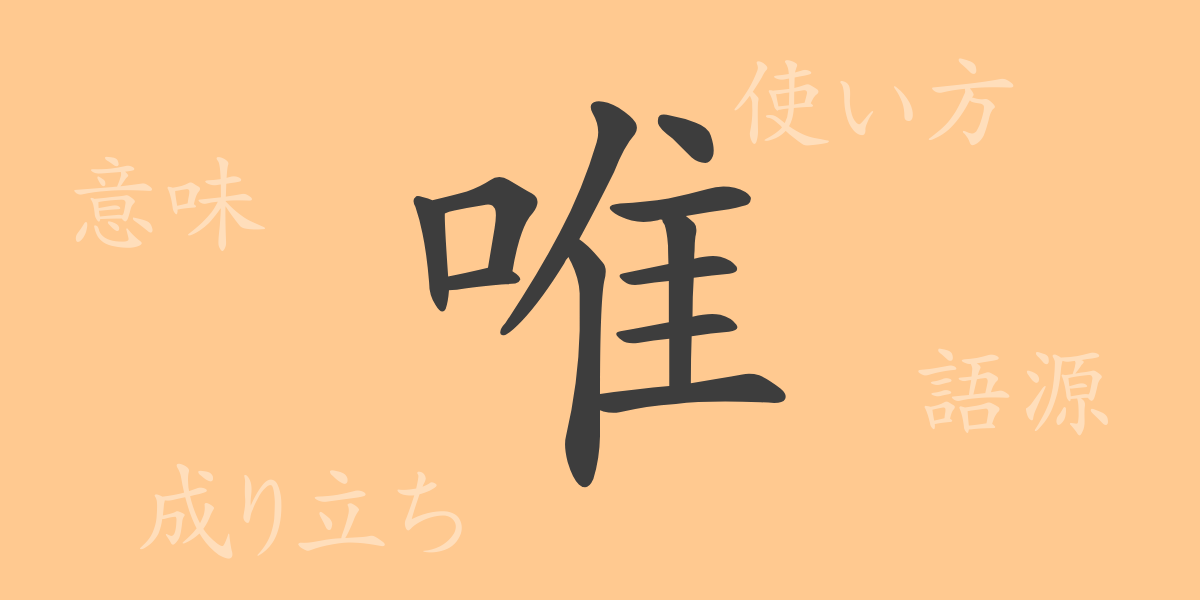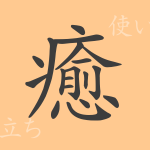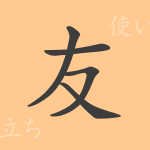The richness of the Japanese language is reflected in its characters. Kanji (漢字) express the subtlety of Japanese culture with their complex structures and deep meanings. This time, we will focus on “唯” (yui), one of the common kanji characters in Japan, exploring its origin, meaning, usage, and its role in our daily life. Through the rich expressiveness of this single character, let’s rediscover the charm of the Japanese language.
The Origin (語源) of 唯
The kanji “唯” (yui) is a character that was passed down from ancient China. Tracing its etymology, it is composed of the “口” (kuchi) part representing a mouth, and “隹” (zui) indicating sound. Initially, it meant a mouth that produces sound, and later it evolved to represent abstract concepts. In classical Chinese, this character was used as “唯” in “唯一” (yuiitsu), meaning “only one,” thus being used to denote singularity or uniqueness.
The Meaning and Usage of 唯
In modern Japanese, “唯” (yui) is used to mean “only,” “just,” or “merely,” and is employed to limit something. For example, “唯一無二” (yuiitsu muni) means “one and only,” emphasizing a unique existence or situation. The phrase “唯それだけ” (yui sore dake) carries the nuance of “that alone is enough.” In this way, “唯” (yui) is used in various contexts in Japanese.
Reading, Stroke Count, and Radical of 唯
The kanji “唯” (yui) occupies a special position in Japanese calligraphy and typography in terms of its reading and form.
- Reading: On’yomi (音読み) as “イ” (i), Kun’yomi (訓読み) as “ただ” (tada)
- Stroke Count: 11 strokes
- Radical: Belongs to the “口” (kuchi) radical
Idioms, Proverbs, and Expressions Using 唯
Idioms, proverbs, and expressions containing “唯” (yui) enrich the Japanese language. For example, “唯一無二” (yuiitsu muni) means “the only one in the world” and refers to something unparalleled and special. Additionally, the idiom “唯我独尊” (yuiga dokuson) means “thinking only oneself is noble,” used to critically describe a self-centered attitude. These words demonstrate the depth of expression in the Japanese language.
Summary of 唯
The kanji “唯” (yui), with its simple yet profound meaning, plays an important role in the context of the Japanese language. From usage that denotes limitation or uniqueness to various idioms and expressions, “唯” (yui) is one of the characters that symbolize the power of words. Through the infinite possibilities that this single character opens up, we can feel the depth and richness of expression in the Japanese language.

























